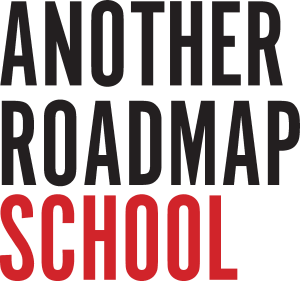The working groups of the School not only share a strong commitment to transformative action in Arts Education, but an equally strong need for reflexivity concerning the forms of knowledge production and exchange in current global conditions. The following questions arose:
How can a globally networked research project work with the different knowledge systems in which practices of learning and creativity are embedded in each geopolitical context?
How do we translate our central terms of work, and how do we deal with misunderstanding and the untranslatable? How, for example, can a concept like “minga” (referring to a particular mode of informal collaborative work) relevant to Ecuadorian researchers get in contact with economies of care and solidarity evoked by Canadian participants?
In which ways can we avoid a structure that goes on to privilege Western / European notions of what “art” and “education” are, or construct a universal notion of “critique”? What is a way of collaborating that allows horizontal knowledge exchange and production both between different “local knowledges” (such as between self-organized education initiatives and academic structures) as well as between partners situated on different places in a global knowledge economy with its colonial traditions?
The school embraces these questions not as a side effect of transregional collaboration, but as key contents of the research endeavour. A reflexive and responsible approach to knowledge production and exchange is one of the core topics of the project.
Horizontal project structure
Another Roadmap School functions in a network structure, as opposed to a pyramidal form of organization. In practice, this means that projects and activities can be proposed by any member or working group, inviting others to participate. The activities of the School can range from small scale virtual exchanges – such as working on a term for the multivocal glossary – to multi-year research collaborations.
Steering Committee
The School is coordinated by an international steering committee. The composition of the committee takes into account the representation of different geopolitical regions, as well as the representation of the various types of organization and work in arts education (museums and galleries, formal education and academia, freelance work, independent and activist organizations). The members were elected at the International Meeting in Madrid in 2015, membership in the SC is revised at each international meeting. The steering committee meets every 2 month in a videoconference.
In its composition, the SC’ aim is to include members from diverse areas, types of entities, and profiles, as well as other aspects that ensure the horizontal nature of the group. The Steering Committee does not seek to represent a single area or continent, but rather to rethink the regions and diversity of the network’s members.
The tasks of the steering committee are:
- The members of the SC act as contact persons for the Another Roadmap School
- The SC evaluates proposals for new working groups wishing to join the network according to the aims and framework of the Another Roadmap School and can accept new working groups
- the members of the committee give reports on the progresses in the network (on a regional level, following language criteria, or concerning a specific cluster project) and maintain an overview of activities, informing on possibilities for exchange and joint action
- the SC decides about the distribution of funds allocated to the Another Roadmap School, in accordance with the respective agreements with the funder.
- they develop presentation formats for the work of the school
- they develop proposals for the agenda of the meetings
- They develop guidelines for joint publication and distribution formats, such as the multivocal glossary
Current members of the Steering Committee are:
- Alejandro Cevallos
- Rubén Gaztambide-Fernandez
- Nora Landkammer
- Carmen Mörsch
- Lineo Segoete
- Emma Wolukau-Wanambwa
- Eileen Legazpi-Ramirez
- Javier Rodrigo
- Mónica Marcell Romero Sánchez
Another Roadmap School thus tests a mode of collaboration which relies on responsibility and accountability of each and distributes power away from the traditional academic institutions, and from the global north, towards the network structure. This model seems to be in line with the concept of an Open School and the paradigm of “unlearning privilege”.
Clusters and Working groups
Another aspect of the Another Roadmap School is the structure through groups or clusters, which are working groups focused on specific topics or by regions and proximity, or even transregional groups and clusters. These groups are validated by the Steering Committee, which monitors their work, but they can operate with relative autonomy, always within the general framework of the network.
Regular Assembly
Lastly, efforts will be made to hold a general assembly once a year, bringing together the committee and other network members. To get involved with the network, please refer to the ‘Participate’ section for details on how to become a member.
